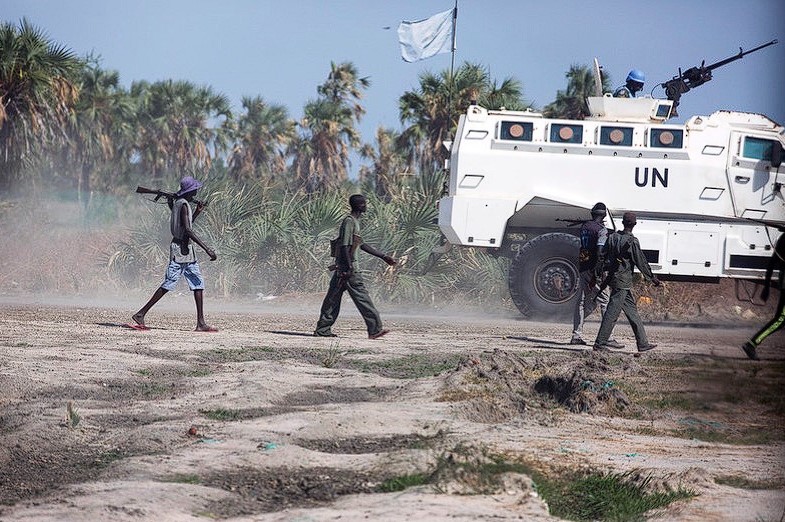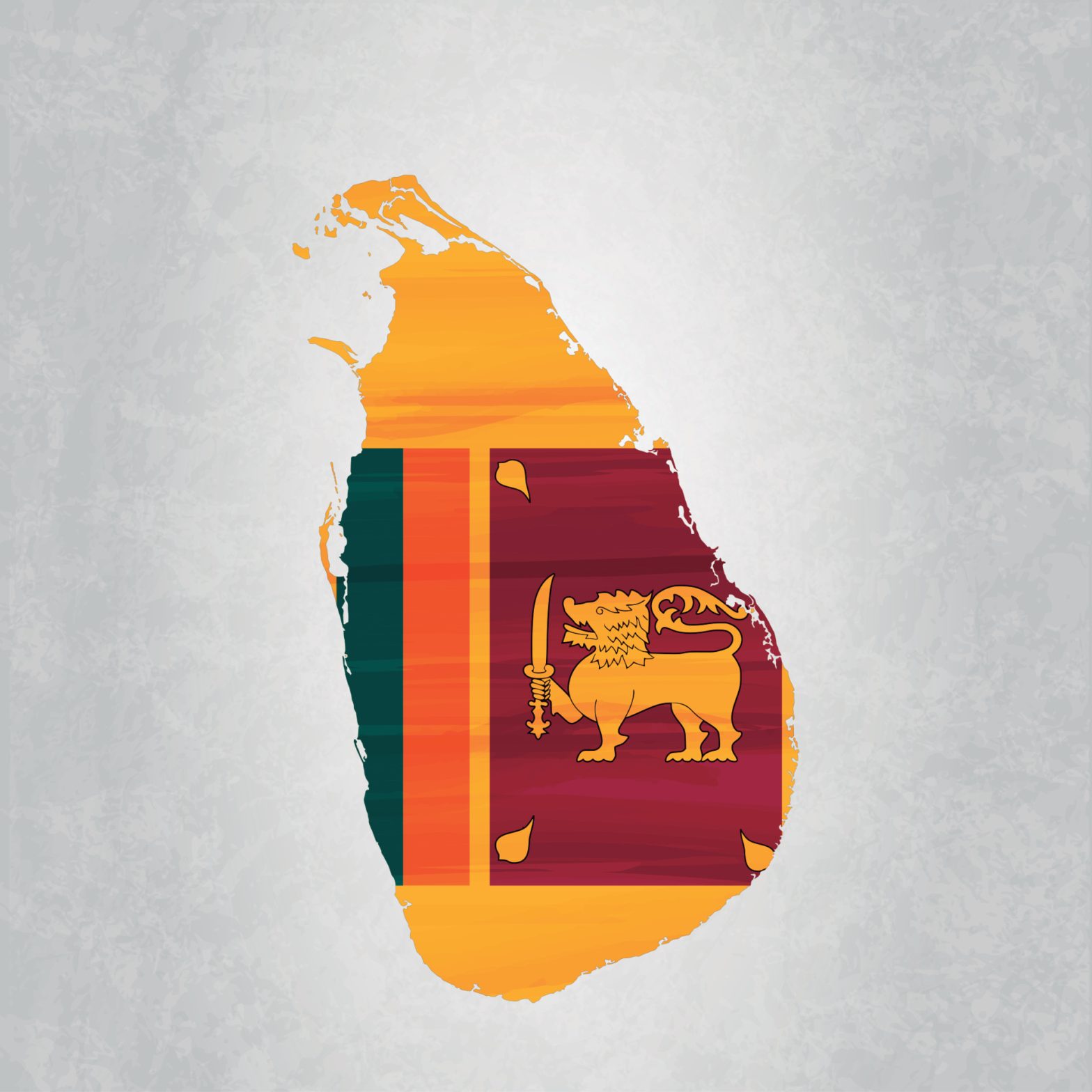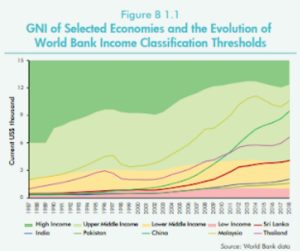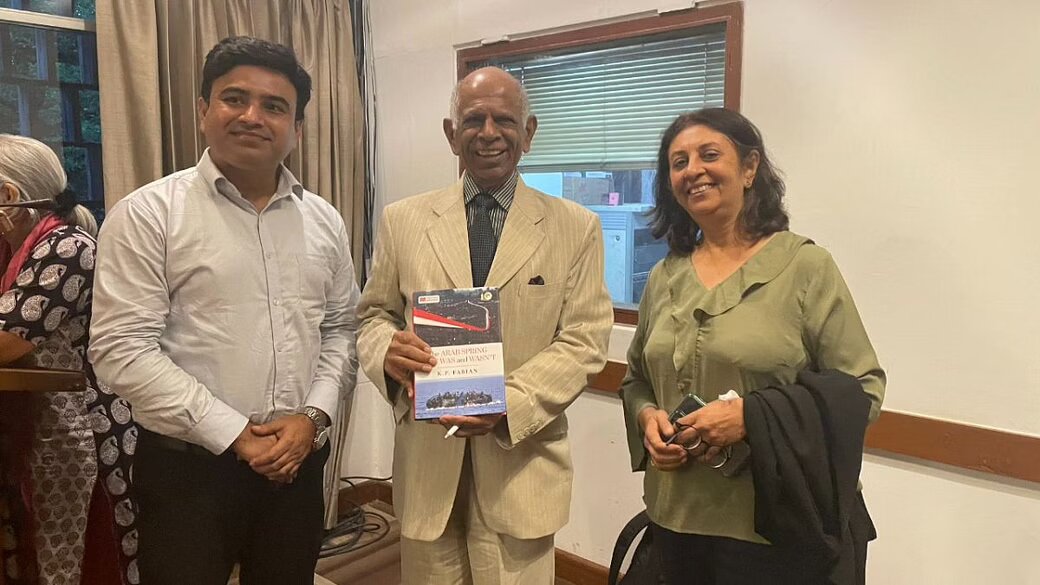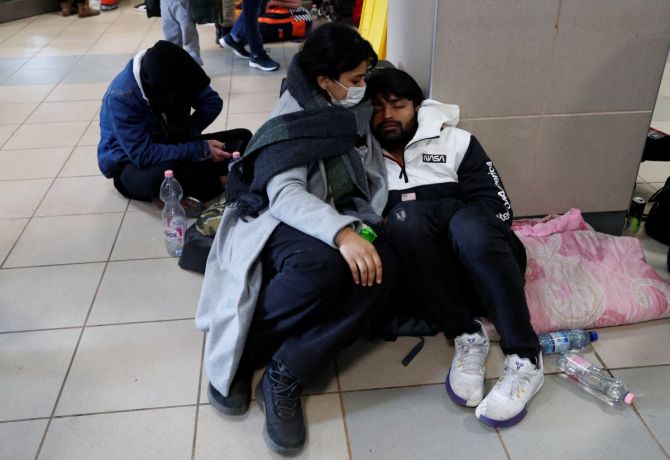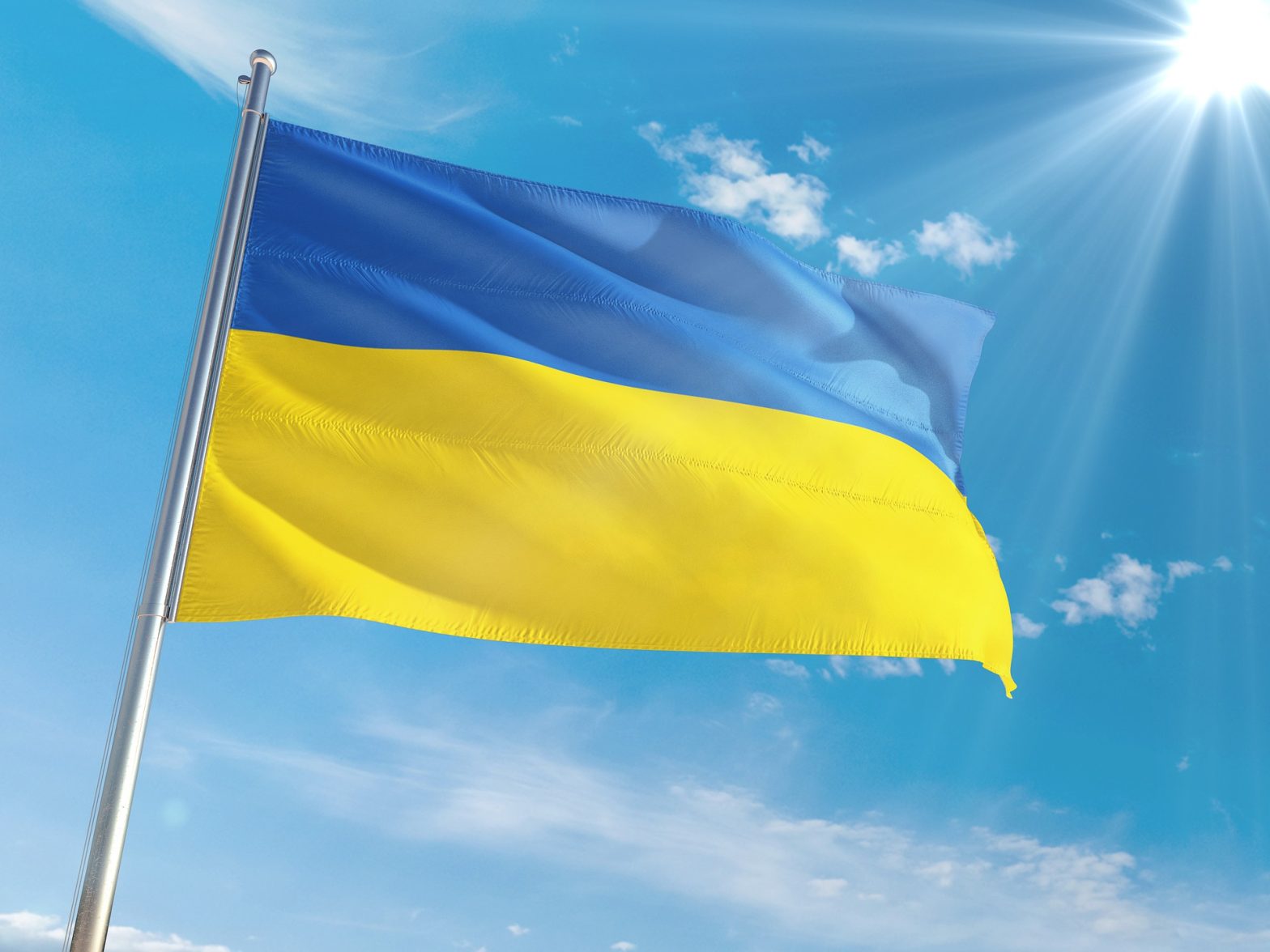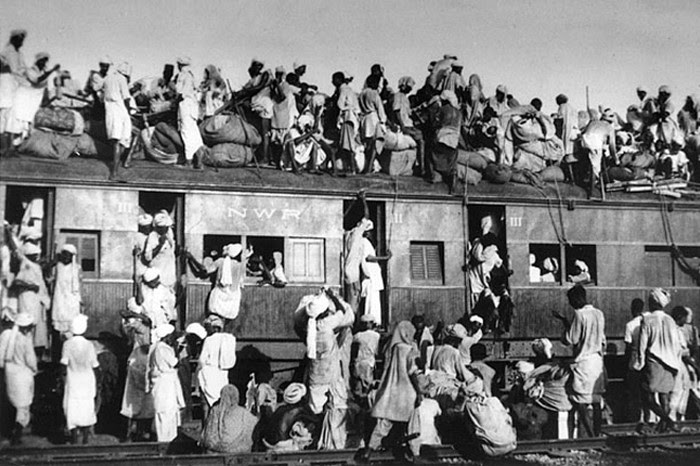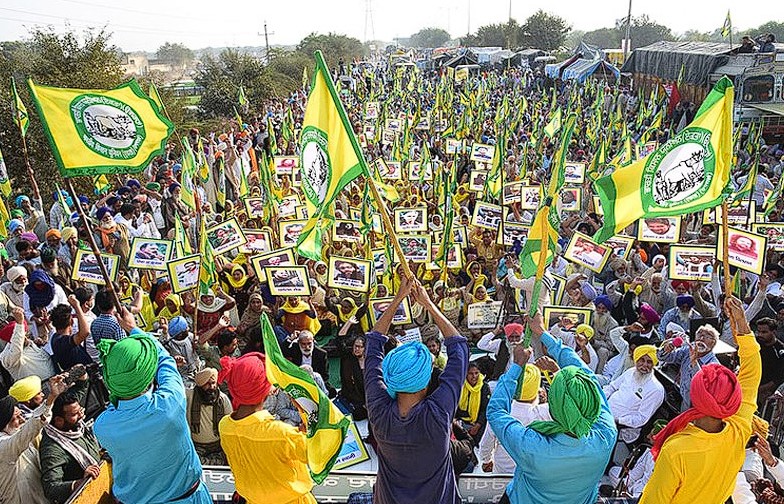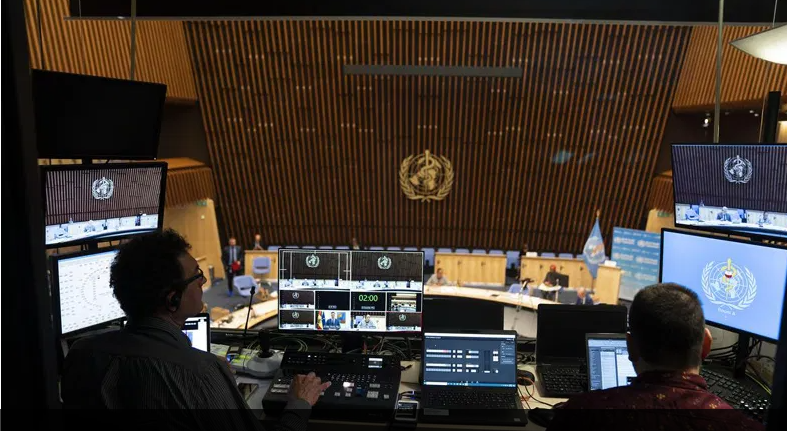Sudan: The Unfolding Tragedy
Is Sudan cursed with a series of civil wars & brutal dictatorships?
As one contemplates the ongoing tragedy in Sudan, it is difficult not to raise at least two questions: What is wrong with the political DNA of this country that, since independence in 1956, its people should have been cursed with a series of civil wars, brutal dictatorships, interspersed with brief democratic governance? Can we describe the unfolding unscripted tragedy as a civil war?
Sudan Descending Into A State Of Nature
At the time of writing, at least 528 human beings have been killed by air strikes and artillery. This is the figure given by the Sudanese Health Ministry; the actual might be more as it is difficult to collect the facts. Hospitals are running short of doctors, medicines, and power. The price of daily necessities has shot up.
Those who can afford it have been fleeing to neighbouring countries, such as Chad and Egypt. Hiring a car to cross the border can cost as much as $40,000. An Indian family back home has recounted how security forces looted all their belongings, including money and a car.
In short, Sudan has descended into the Hobbesian ‘state of nature’ in many parts of this vast country of 1.88 million square km. The WHO (World Health Organization) has estimated that one-third of the 46 million population needs humanitarian assistance. Obviously, it is increasingly difficult to distribute such assistance in the chaos enveloping Sudan.
The West, Saudi Arabia, the UAE and many others have evacuated their diplomats and some of their nationals. Since foreign embassies are closed, many Sudanese cannot cross the border as their passports are with the embassies.
The ongoing crisis broke out on 15 April 2023 when the tension between the regular military, SAF (Sudanese Armed Forces) headed by General Abdel Fattah al Burhan, and the RSF (Rapid Support Forces) led by General Mohammed Hamdan Dagalo, generally known as Hemedti, spilt over into the street endangering the civilian population and even the diplomatic corps. The RSF likely fired the opening shots.
Who Is Hemedti?
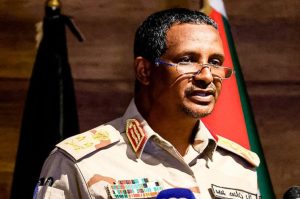
General Dagalo was born sometime between 1973 and 1975, and his uncle Juma Dagalo was chief of the Rezeigat tribe, originally hailing from Chad. Leaving school while in the third grade, he got into camel trading and later joined the infamous armed gang known as Janjaweed, meaning ‘devil on a horse’ in the local language.
It gained support from the Libyan ruler Gaddafi who had plans to expand into Chad and Sudan. For that purpose, he formed the Islamic Legion imitating the Foreign Legion of France. Gaddafi eventually gave up, but Janjaweed carried on committing pillage, rape, and killing in Darfur.
General Omar al Bashir, who staged a coup and took over Sudan in 1989, used Janjaweed to put down the rebellion in Darfur. In 2003, Al Bashir established the RSF (Rapid Support Forces) with Hemeti as its head. The Janjaweed got official status.
The current strength of the RSF is about 100,000. The RSF had access to government funds. Hemedti got into gold mining- Sudan is rich in gold- and other businesses. He started selling gold in Dubai and developed links with the UAE.
He sent men and even children to fight on behalf of the UAE in Yemen, where Saudi Arabia’s Crown Prince Mohammad bin Salman started chasing the mirage of military victory over the Houthis in 2015. The RSF paid more to its officers and men than the IAF.
The RSF in charge of border control got $5 million from the European Union through the UN‘s OHCHR (Office of High Commissioner for Human Rights). The EU Commission has tried to justify itself by saying that the intention was to prevent or reduce the migration of refugees into the European Union. The fact is that the EU funded Hemedti after the International Criminal Court convicted him.
The Short-Lived Collaboration Between SAF & RSF
Faced with popular agitation against Al Bashir that started in 2018 as part of the Arab Spring, the SAF and RSF decided to remove him from power and arrested him. They took power, and later, as the Sudanese continued to demand an end to military rule, the RSF carried out a massacre on 3 June 2019.
It was worse than the Jallianwala Bagh (1919), with women and men being raped. The grim toll was 100 at least, and many bodies were thrown into the Nile. The Physicians for Human Rights based in Boston has given an authoritative account at https://phr.org/our-work/resources/chaos-and-fire-an-analysis-of-sudans-june-3-2019-khartoum-massacre/
The African Union met on 6th June 2019 and suspended Sudan’s membership to be resumed only after a civilian government had been established. The suspension was held till a civilian government headed by Abdallah Hamdok took office in September 2019.Unfortunately, the military struck again in October 2021.
Prime Minister Abdallah Hamdok refused to support the coup and resigned. The military has postponed the holding of the general election from 2022 to July 2023. Obviously, a peacefully and fairly held general election is not in the interest of the military.
Meanwhile, the question of the induction of the RSF into the SAF came up. Obviously, the RSF demanded more than the SAF was prepared to give. It is that dispute that caused the current conflict between the two, presumably started by the RSF.
Who Can Mediate?
Ideally, Egypt should be able to mediate between the SAF and RSF, arrange a cease-fire, and hold an election, preferably supervised by the African Union. However, Egypt is facing a dilemma. It supports SAF, but the RSF is supported by the UAE, to whom Egypt, in serious economic difficulties, is beholden.
We might recall that El Sisi had the financial support of the UAE when he carried out the coup in July 2013 when as Defence Minister, he arranged for the kidnapping of the democratically elected President Morsi.
The US Secretary of State Blinken has been in touch with both sides and even succeeded in arranging for a cease-fire that did not last. Cease-fire has been declared more than once.
The United Kingdom, the former colonial power, has evacuated its diplomats and some nationals. It does not seem to have engaged in any mediation.
The UAE and Saudi Arabia might not fully qualify as mediators as the RSF is their client. The RSF has sent thousands of fighters, some even children, to Yemen, where till now the Saudi Crown Prince Mohammad bin Salman has been chasing the mirage of military victory.
The African Union, or Sudan’s neighbors, is best placed to mediate. In this context, we need to watch closely the efforts underway by IGAD (Intergovernmental Authority for Development). The IGAD’s members are Djibouti, Ethiopia, Kenya, Somalia, Sudan, Uganda, Eritrea, and South Sudan.
The AU amended the charter of IGAD in 1995. Sudan is the current chair of IGAD. Ethiopia has taken the lead, and the SAF and RSF have been invited to a summit meeting in South Sudan. It is not yet clear whether the two belligerents have accepted the invitation.
In this context, we need to examine Ethiopia’s credentials as a mediator. By building a big dam, called the Grand Ethiopian Renaissance Dam, using the waters of the Nile, Ethiopia is already in a serious dispute with Sudan and Egypt as they argue that they would be deprived of water. There are territorial disputes between Ethiopia and Sudan in the context of the recently concluded military action by the Ethiopian Government against the rebels in Tigray.
However, we should not write off Ethiopia as a mediator. The AU is based in Addis Ababa. The Addis Ababa agreement of 2005 paved the way for the separation of South Sudan, ending two civil wars that cost more than 2 million human lives.
India’s ConcernsThere are about 4000 Indians in Sudan. That includes the Hakki Pikki tribe from Karnataka. About 31 of that tribe are in Sudan selling traditional Indian medicines.
The Twitter exchange between senior Congress leader Siddaramaiah and External Affairs Minister Dr Jaishankar exemplifies avoidable unpleasantness. Siddaramaiah tweeted, asking the Ministry of External Affairs and others to safely bring back the 31 members of the tribe from Sudan.
Minister Jaishankar retorted that he was “appalled” that anyone should think of politicizing the issue. Siddaramaiah retorted that since the Minister is busy getting appalled, he should tell who should be approached.
Was New Delhi less than prompt in responding to the crisis on 15th April? On 20th April 2023, the Chief Minister of Kerala sent a letter to the Prime Minister, who chaired a meeting the next day, six days after the media reported the crisis.
The media reported that “the PM instructed all relevant officials to remain vigilant, closely monitor the developments and continuously evaluate the safety of Indians in Sudan and extend all possible assistance, the PMO said… He also directed officials to prepare evacuation plans to account for the rapidly shifting security landscape and the viability of various options.”
I am afraid that I must take the report with a pinch of salt. I would be ‘appalled’, to borrow the words of Dr Jaishankar, if the MEA had been waiting for P.M.’s instructions and that too from a meeting held after six days. Some in the media are working overtime to project the impression that nothing moves unless the Prime Mover, to borrow a term from Aristotle, moves first.
There is a second matter that appalled me. A young man from Kottayam requested the Embassy in Khartoum to include his pregnant wife, a Sudanese, in the list for evacuation. The Embassy refused on the ground that she did not have a visa.
Dear reader, permit me to reminisce. In August 1990, I, as Joint Secretary (Gulf) was in our Embassy in Kuwait, accompanying External Affairs Minister I.K. Gujral. Hiding in the mission was a Menon from Kerala with an American passport. He wanted to come to India on the plane of the Minister.
Obviously, he had reason to fear that his American passport might come in the way at the airport. In ten minutes, the Embassy issued him a temporary Indian passport valid for seven days to be surrendered to the Gulf Division of the Ministry.
Emergencies require lateral thinking. It was sad to see that Dr Shashi Tharoor had to spend his time asking the Ministry to do what was obvious. It is singularly appropriate that considering the election in Karnataka, the Government have announced “Operation Kaveri”. The evacuation of over 176,000 from Kuwait and Iraq in 1990-91 remained nameless!
Going back to the question about ‘civil war,’ it is wrong to use that phrase. In Sudan, two armies are at war to monopolize the political power they have been sharing. As regards the DNA question, it is painfully clear that wherever the military has removed a dictator in response to popular agitation, the military does its worst to hold on to power, as we see in Egypt too.
This article was published on madrascourier.com
